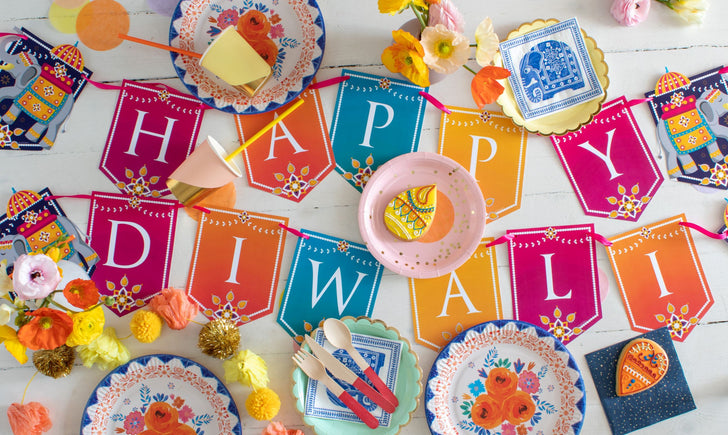Celebrating Diwali

Diwali is one of the biggest holidays celebrated in India. Second, to Holi, known as the festival of colours, Diwali is known as the festival of lights. The name comes from the practice of lighting oil lamps and decorating homes and cities with strings of twinkling lights to symbolise the victory of light over darkness.
While many Hindus celebrate Diwali, people of various faiths regard the five-day festival in India and other countries. While Diwali is rooted in religious tradition, the festival has also become a “westernised” holiday in India, similar to how Christmas is celebrated by many Christians and non-Christians alike globally.
Hindus observe Diwali by lighting small oil lamps known as ‘diyas’ in honour of Lakshmi, the goddess of wealth and good fortune.
So, now that you know more about what Diwali is, how can you celebrate Diwali while not in India?
A Lush Diwali Experience
Firecrackers and decorating with lamps and candles are an essential part of the Diwali celebration. The festival takes place over five days. However, as many who celebrate Diwali are not in India, Diwali can also be celebrated on the third and most important day of the 5 days only.
The first day, Dhanteras, is for celebrating Lakshmi, the Hindu goddess of wealth, prosperity, youth, and beauty. As this day represents wealth, it’s tradition to buy new clothes, jewelry, and utensils/cutlery and then light lamps to welcome Lakshmi.
The second day, known as Chhoti Diwali, Naraka Chaturdasi or Kali Chaudas, focuses on a story from Hindu mythology about the god Krishna and his defeat of the demon god Narakasura. A day of decorating with some installing twinkling lights to celebrate his victory.
The third day, known as Diwali, Deepawali, or Lakshmi Puja, is the most important day of the Diwali festival - the day that all celebrate. On this day, people visit family and friends to feast and exchange treats and gifts. The tradition of lighting lamps continues to welcome light and prosperity from the goddess Lakshmi.
Annakut is celebrated on the fourth day of Diwali which is the 1st day of the new year according to the Hindu calendar. It is a day of offering gratitude to Krishna with heaps of food in the shape of Govardhan mountain.
The fifth day, known as Bhai Dooj or Yama Dwitiva, is a day for brothers and sisters to honour one another. During this time, siblings perform a ceremony through prayer.
A Diwali Feast
Diwali is not Diwali without delicious feasting and DESSERT! One popular specialty is kaju katli, a fudge-like sweet made with ground cashews and sugar, and sometimes flavoured with a touch of rose water. Another popular treat is besan burfi, a fudge-like bar made from flour, sugar, and cardamom and sprinkled with almonds or pistachios. Jalebi, a kind of sweet fried bread, is also a popular choice. And of course, the serving is done impeccably with bright colours and patterns, and beautiful table decor.
Covid-Safety Diwali Celebration
The pandemic put a damper on Diwali festivities in India, with large-scale celebrations cancelled, some temples live-streamed prayer sessions, and many families celebrated quietly at home rather than meeting in large groups. However, this year is a little different, at least for us in South Africa.
It’s time to deck out the tables, feast the day and celebrate safely with family and friends. Our beautiful Diwali Range has everything you will need to create an Indian escape, with beautiful patterns and colours. From napkins to Eastern Inspired Drinks Charms, to boho pom-pom garlands, this range is the perfect way to light up the room and have a great time! This way you’ll have more time to focus on looking good and entertaining your guests with our premium - but cost-efficient - party supplies!
